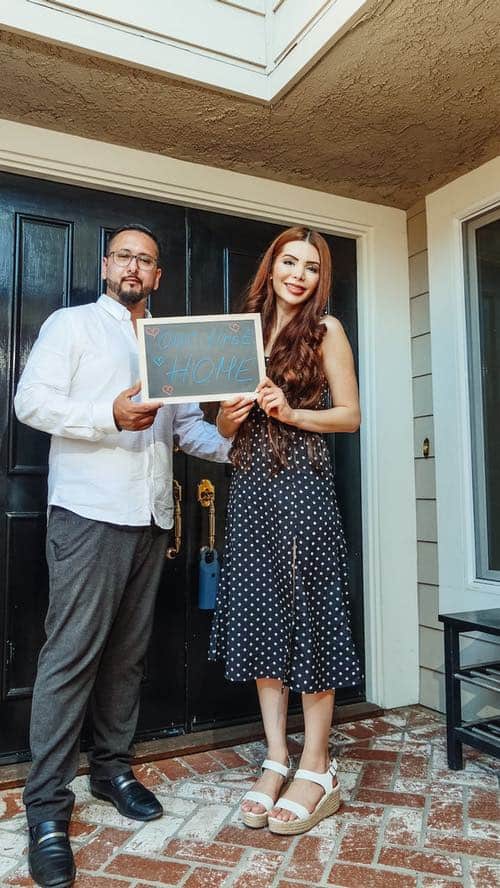
Newlyweds and Homeownership: Smart Budgeting and Planning Strategies for Your First Home Together
For the majority of newly married couples, one of their primary milestones and biggest goal as a partnership is finding the perfect new home to move into together. Of course, the prospect of becoming a homeowner is not something that should be taken lightly, and no matter what your personal or joint financial circumstances might be, there is always going to be a lot of planning and strategy that needs to take place before any big moves can be made.
Here are some of the most useful tips for smart budgeting and some planning strategies when you and your spouse are looking to buy your first home together.
-
Create A Joint Budget
You should always start the process by creating a joint budget that combines all of your income, and expenses and considers your joint and separate financial goals. Be as transparent as you can possibly be about your respective financial situations and your priorities. Work together to come up with a budget that aligns with everything you both want to achieve.
When creating a budget like this, you need to factor in things like mortgage payments, homeowner’s insurance, property taxes, maintenance costs, utilities as well as general living expenses allowing for necessities (such as health insurance) and incidentals like clothing and fuel. This is the only way to get a clear picture of how you’ll manage when you enter the property market.
-
Start Saving For A Downpayment
Saving for a downpayment is arguably the most important part of the entire home-buying process because it is essentially the key that is going to unlock the door of most properties for you. Decide together on a target for this downpayment value based on the type of mortgage that you think you are going to end up choosing, as well as the requirement of your lender.
The average downpayment is 6% of the loan value. Create a joint plan for how the money is going to be saved, whether that includes somebody putting more in than the other or whether you’ll seek assistance from family members who are willing to help.
-
Get Pre-Approved For A Mortgage
Before starting your property search, it can be a great thing to get pre-approved for a mortgage from a reputable lender. Having this assurance will help you to understand how much you can actually afford to spend on a home as well as indicate the value of the property you should be looking at. It is worth keeping in mind that getting pre-approved for a mortgage does not mean that you have to borrow the full loan amount that has been specified: it just indicates the maximum you can borrow. You can still choose to borrow a lower amount if it aligns better with your budget and goals, or you find the perfect house for less than your maximum loan value.
-
Plan For Closing Costs
Along with the downpayment, there will also be a number of closing costs that come with buying a new home. These include things like loan application fees, appraisal, inspection and attorney fees, along with a number of other related expenses. Make sure that you factor these expenses into your budget from the start so you are not caught out at the end.
-
Research Homeownership Expenses
Make sure that you are both aware of all of the ongoing costs and expenses that come with owning a house, such as property taxes, utilities, homeowner’s insurance, repairs, and maintenance. Understanding these costs and both being on the same page is vital to harmonious joint ownership going forwards.
-
Research Homeownership Tax Benefits
Homeownership can bring with it a number of different tax benefits like mortgage interest deductions and property tax deductions. It is important that both of you familiarize yourself with all of the potential benefits that might be in store so you can adjust your budget accordingly.
-
Plan For Home Improvements
If you are first-time buyers, you should already be factoring in the plan and possibility for future updates and renovations to your home. This will need to be considered for your future budget, and it is important to prioritize and agree on which home improvements need to be put first.
-
Review Insurance Needs
Homeowners insurance is one of the most crucial aspects of protecting your new investment, so it is important to review your insurance needs including things like coverage for the structure, liability, personal belonging and the expected premiums.
-
Communicate Openly And Frequently
A huge life decision like buying a house with another person isn’t something that should be taken lightly, so it is important to make sure you and your spouse check in regularly with one another to see how you are feeling about the decisions that are being made. You don’t want to sign any contracts until you are both 100% happy and satisfied with the situation.
-
Seek Professional Assistance If Needed
Don’t make the mistake of thinking that going through a property sale ‘on your own’ is a mark of true success. If, as a couple, you are feeling slightly overwhelmed and out of your depth, then don’t be afraid to consult with a financial advisor, real estate agent or mortgage counselor who will be able to help you with everything from budgeting to planning to managing finances and everything in between. There are plenty of good resources online, for example – the What’s My Payment website is a great place to start.

Photo by Kindel Media on Pexels.com
If you’re still in your wedding planning and budgeting process, read this article about surprising costs in wedding planning.



